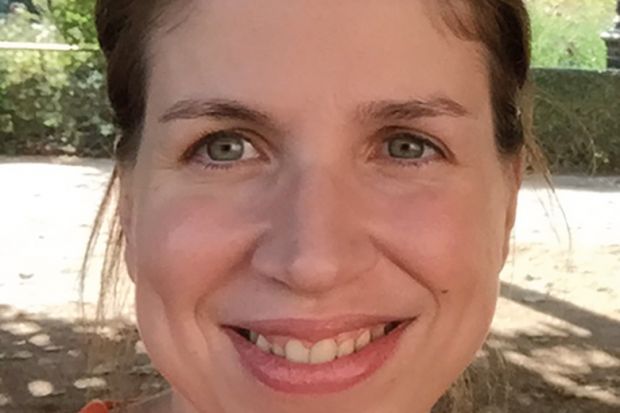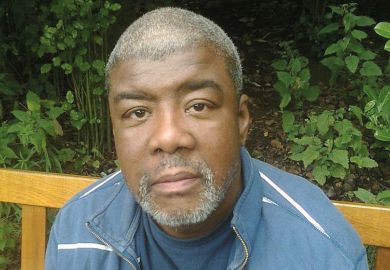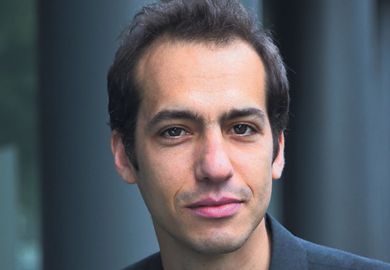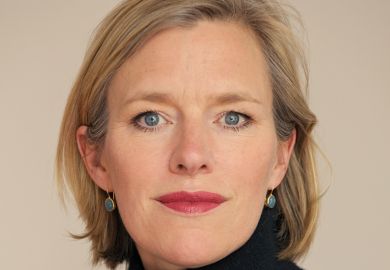What sort of books inspired you as a child?
I devoured Greek mythology – inexhaustible stories, rarely with a neat ending. Growing up in 1980s Greece I benefited from excellent children’s literature that trusted in readers’ critical abilities. Eco-novels invited you to become part of the solution from a young age, treating readers as thinkers with agency. Galatea Grigoriadou-Soureli’s I Do Care was crucial for inspiring my environmental conscience. One of the first translated novels I read was Christine Nöstlinger’s Rosalinde hat Gedanken im Kopf. It was not often that children’s literature would feature a complex female character, especially a child living a mundane yet entirely unique life, as a lead. This was my first contact with Austrian literature, which ended up playing a prominent role in my thinking later on.
Your latest book explores ‘Social and Political Theatre in 21st-Century Britain’. Which texts proved most useful when you began engaging with contemporary theatre?
Bert O. State’s Great Reckonings in Little Rooms and Stanton B. Garner’sBodied Spaces were recommended by my mentor Elizabeth Sakellaridou. The impact of phenomenology on my thinking about theatre was immediate and it endures, from intersubjectivity to affect and the bond between individual and collective experience. Maurice Merleau-Ponty’s writing was, to me, the strongest testament to the fact that neoliberalism is ultimately untenable.
Which books provide the most compelling picture of Britain and the neoliberal world order today?
Certainly David Harvey’s A Brief History of Neoliberalism. Jen Harvie’s Fair Play discusses neoliberalism in acts of producing and spectating art, heightening the significance of subversion. Richard Sennett’s work, from The Fall of Public Manto Together, and, of course, most of Zygmunt Bauman’s books. His work with Carlo Bordoni inState of Crisis is essential reading.
What recent plays would you recommend to get to grips with the era of Brexit and Trump?
Playwrights sense brewing crisis in the atmosphere, even before it explodes. Caryl Churchill’s extraordinary Far Away and Escaped Alone deal with apocalyptic wars spoken about by the individual still standing, agent and observer of the dystopia. Escaped Alone also addresses how society treats women, particularly of a certain age, vocalising righteous indignation. Martin Crimp’sFewer Emergencies,The City and In the Republic of Happiness consider the self-performances, surveillances, complacencies and insularities of our time with razor-sharp precision, while retaining their poetry. Such works are calls to recognise our rights and responsibilities. They are experimental and resist messages, inviting us to look inwards and outwards, challenging binaries between personal and political.
What is the last book you gave as a gift, and to whom?
Walt Whitman’s Leaves of Grass, with an introduction by William Carlos Williams, to my sister. She is much younger than me, at the start of her university course, and has the most beautiful appetite for reading and analytical capability I have ever known.
Vicky Angelaki is associate professor of theatre at the University of Reading. Her latest book is Social and Political Theatre in 21st-Century Britain: Staging Crisis (Bloomsbury/Methuen Drama).
POSTSCRIPT:
Print headline: Shelf life
Register to continue
Why register?
- Registration is free and only takes a moment
- Once registered, you can read 3 articles a month
- Sign up for our newsletter
Subscribe
Or subscribe for unlimited access to:
- Unlimited access to news, views, insights & reviews
- Digital editions
- Digital access to THE’s university and college rankings analysis
Already registered or a current subscriber?



